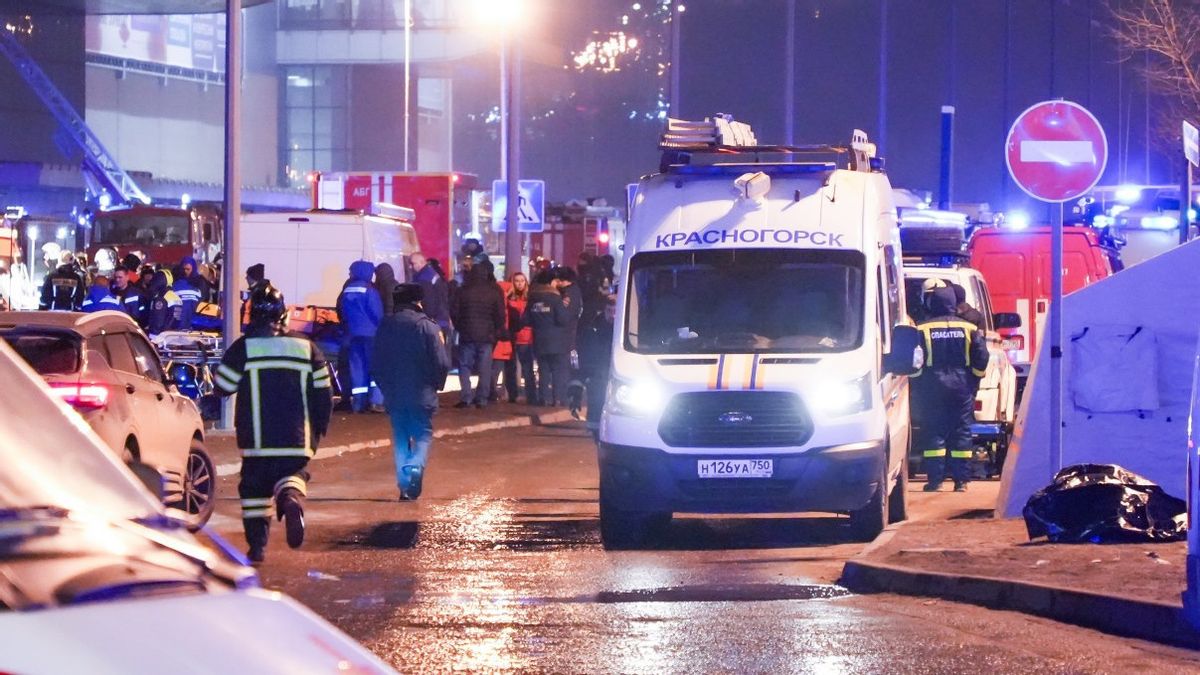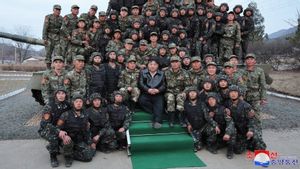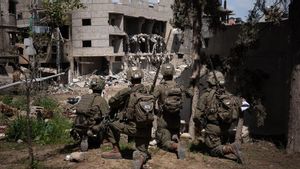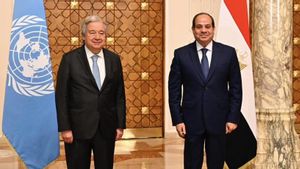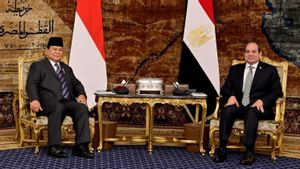JAKARTA - The Kremlin said on Monday it was not taking part in discussions on reinstating the death penalty, which was broached by President Vladimir Putin's top allies after the deadliest attack in Russia in two decades.
Gunmen stormed into the concert venue at Crocus City Hall near Moscow on Friday, killing at least 137 people and wounding 182 others, the worst loss of life in Russia since the Beslan school siege in 2004.
Russian authorities detained four people after the incident, at least one a Tajik national, who they say directly carried out the attack. Meanwhile, the ISIS militant group claimed responsibility for the attack.
"Now many people are asking about the death penalty. This topic, of course, will be studied deeply, professionally, and meaningfully," said Vladimir Vasilyev, leader of the United Russia faction in the lower house of parliament, as quoted by the state news agency TASS, reported by Reuters, March 25.
Meanwhile, Deputy Chairman of the Security Council and former president and ally of Vladimir Putin, Dmitry Medvedev, discussed the detained suspects on his Telegram channel on Monday.
"Should they be killed?" he asked.
"They must be killed. And will be killed," he continued.
Separately, the Kremlin said it would not participate in talks on lifting the death penalty moratorium.
"We are not taking part in these discussions at the moment," Kremlin spokesman Dmitry Peskov told reporters.
As previously reported, four perpetrators of the attack at the Crocus City Hall concert venue underwent trial today on charges of committing acts of terrorism. Quoting Metro.co.uk, Monday 25 March, of the charges against the four, three of the perpetrators pleaded guilty.
The three are Dalerdzhon Mirzoyev (32); Saidakrami Rachabalizoda (30); and Shamsidin Fariduni (25). They are ready to face a maximum sentence of life imprisonment.
SEE ALSO:
Meanwhile, the fourth suspect, Mukhammadsobir Faizov (19), sat with his eyes closed throughout the trial. He was reluctant to respond to the panel of judges
The death penalty is legal in Russia, but no executions have been carried out since 1996, when President Boris Yeltsin issued a decree establishing a de-facto moratorium, which was explicitly confirmed by the Constitutional Court in 1999.
Russia's criminal code currently allows the death penalty for five offenses: murder, genocide, and attempted murder of a judge, police officer, or state official.
The English, Chinese, Japanese, Arabic, and French versions are automatically generated by the AI. So there may still be inaccuracies in translating, please always see Indonesian as our main language. (system supported by DigitalSiber.id)
